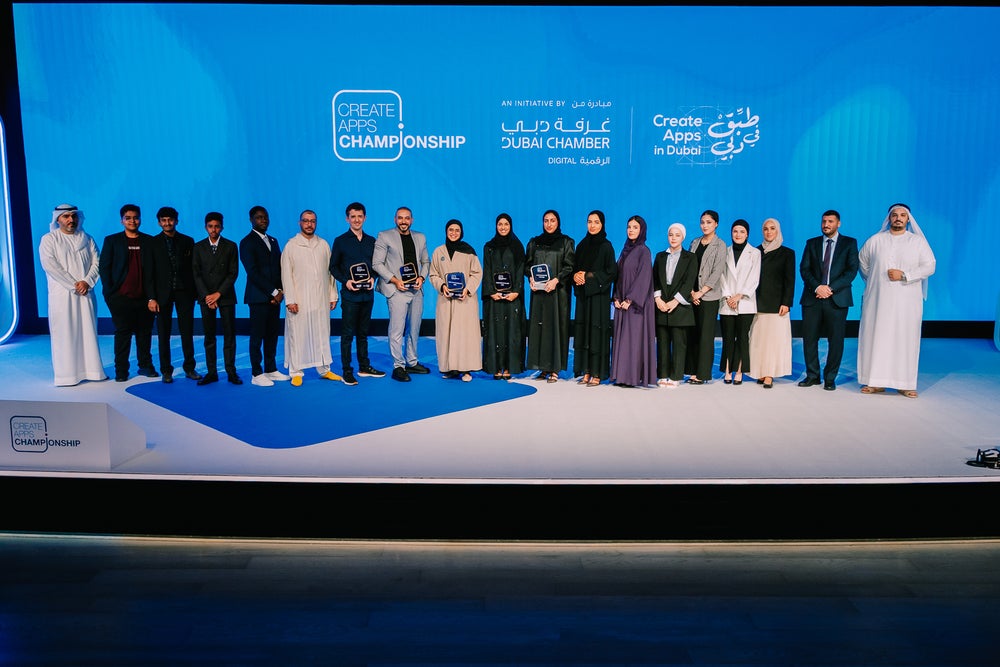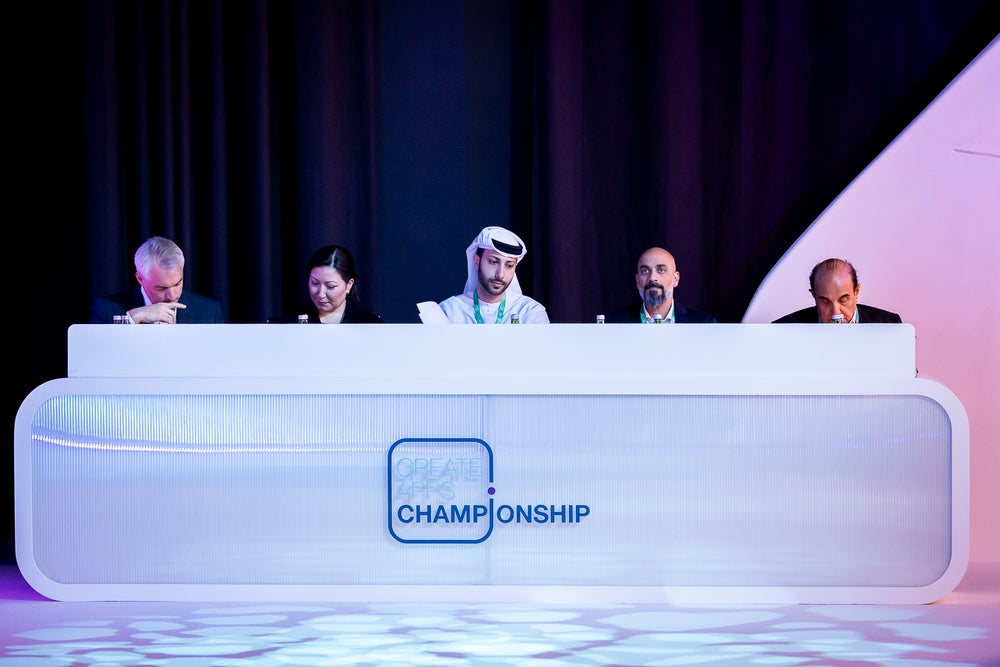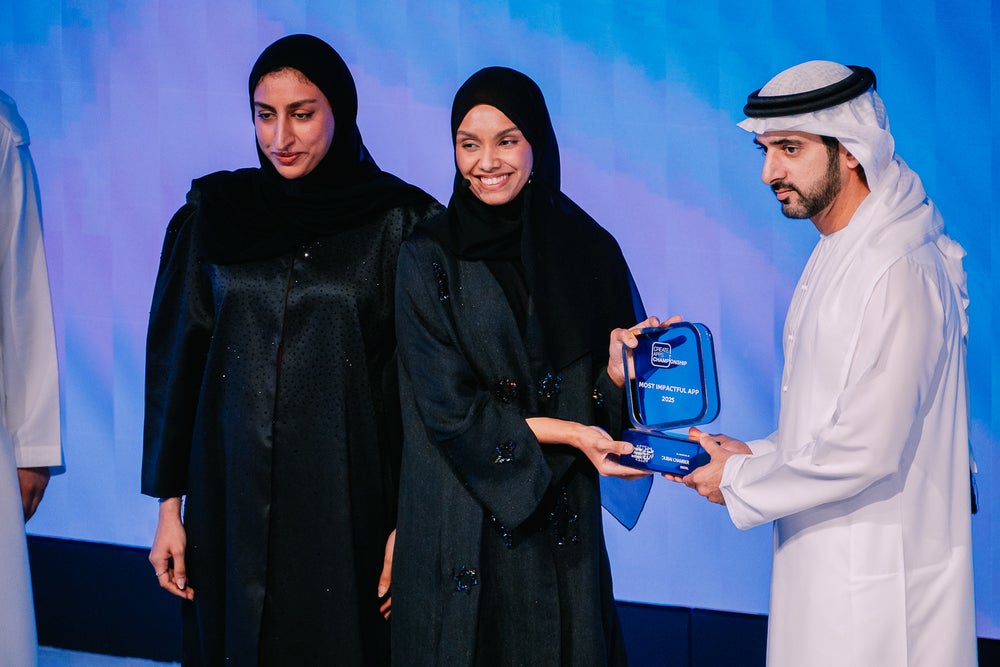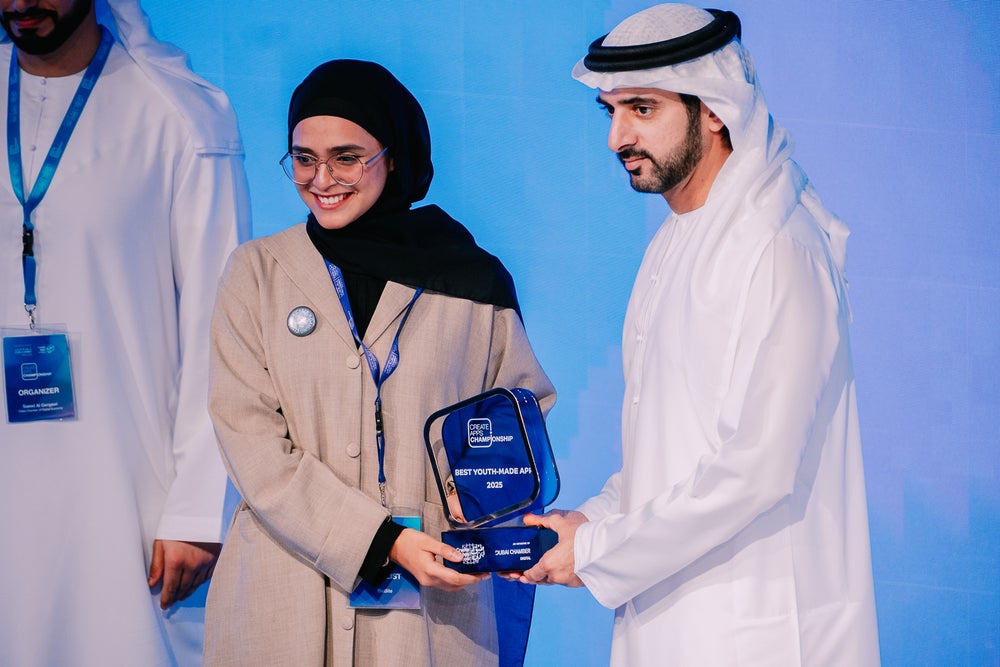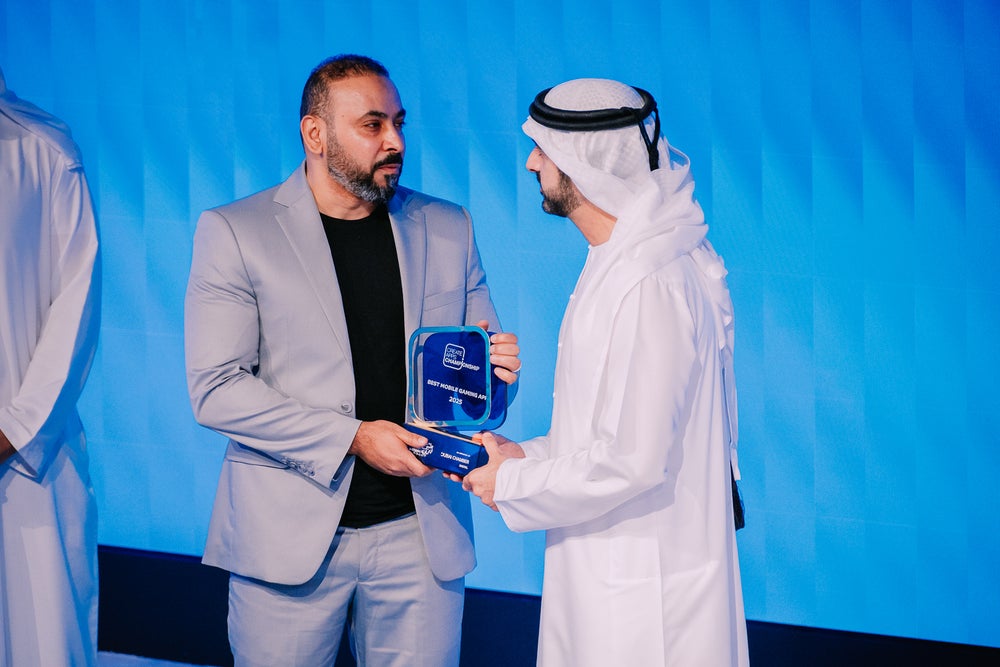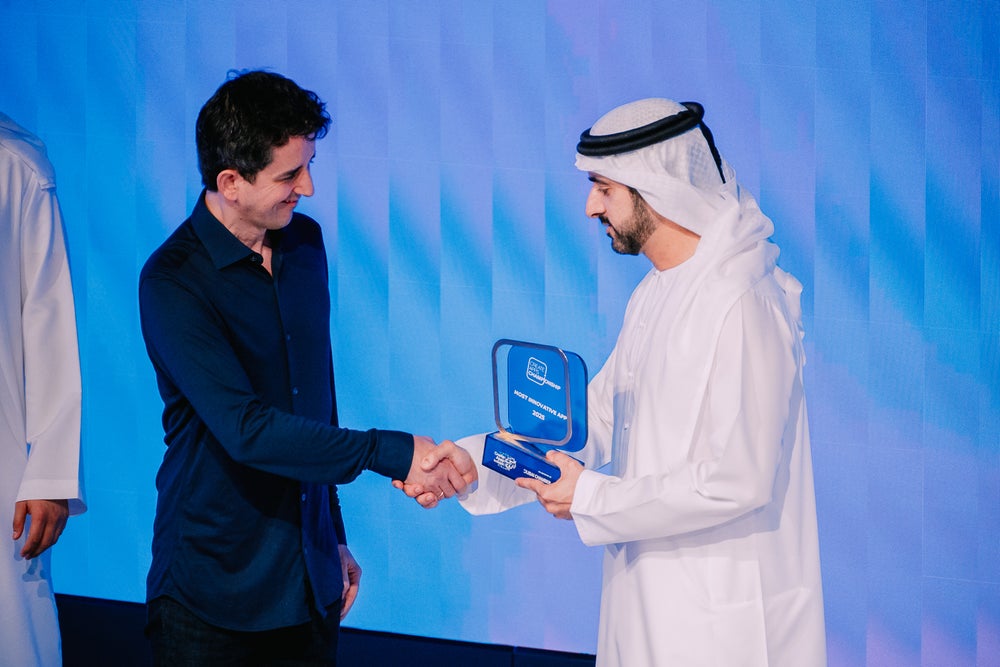H.H. Sheikh Hamdan Felicitates The Winners Of Dubai Chamber of Digital Economy's Create Apps Competition Dubai Chamber of Digital Economy's Create Apps Championship celebrates its 2025 winners.
You're reading Entrepreneur Middle East, an international franchise of Entrepreneur Media.
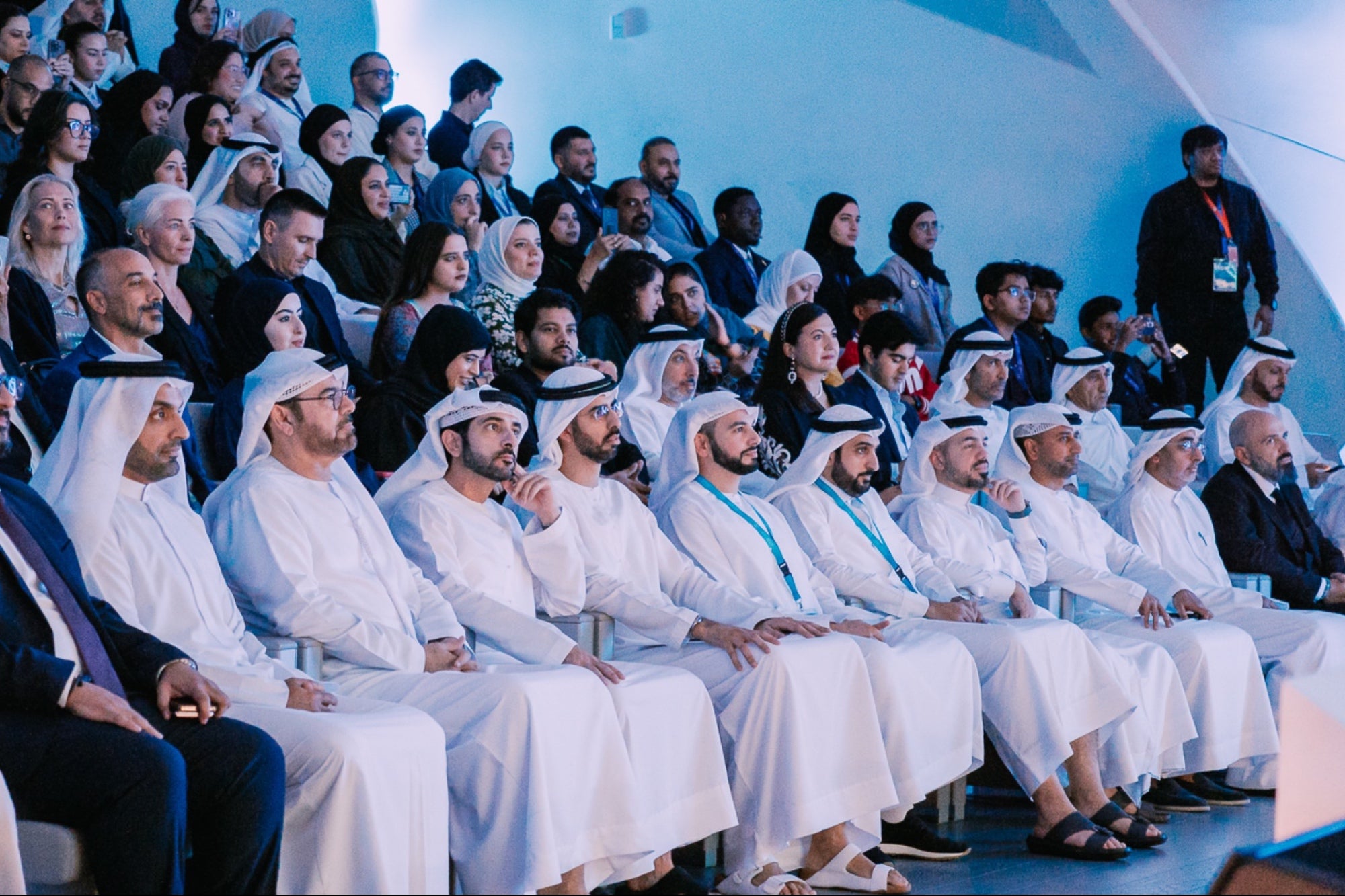
The conclusion of the widely anticipated second edition of Dubai Chamber of Digital Economy's (DCDE) Create Apps Competition took place at the Museum Of The Future on April 16, 2025 in the presence of H.H. Sheikh Hamdan bin Mohammed bin Rashid Al Maktoum, Crown Prince of Dubai and Chairman of Dubai Executive Council. Four winning teams walked away with a prize worth US$150,000 each, with one of them also receiving the added title of "Dubai's App of the Year." Additionally, the winners will receive support in business licensing, banking services, as well as access to potential partners and clients courtesy DCDE.
"We are committed to expanding our investments in state-of-the-art digital technologies to solidify Dubai's position as a global hub for technological innovation," Sheikh Hamdan said during the event. "As part of this vision, Dubai is forging its own path toward a knowledge-based economic model—one that is powered by advanced technologies and their vast capabilities, which lay solid foundations for a sustainable digital economy that supports Dubai's comprehensive development across all sectors."
In its second year, the Create Apps Competition opened up its doors to tech enthusiasts from across the globe, attracting more than 4,710 applications (a four times increase from the 1,110+ applications seen in the first edition) from 132 countries. 70% of these initial submissions came in from international applicants.
Over the series of qualifying rounds that followed since November 2024 -when the contest's applications officially closed- 775 participants qualified for the first stage, 332 made it to the quarterfinals and 24 teams made it to the semifinals. The finals round saw 12 teams battling it out for top spots in their respective categories.
Indeed, a total of four categories comprised the Create Apps Competition this year, namely: Most Impactful App, Best Youth-made App, Best Mobile Gaming App, and Most Innovative App. Each category had three finalists, making up the aforementioned 12 finalists.
All the winners and participants of the Create Apps 2024-25 edition.
(All images courtesy of Dubai Chamber of Digital Economy)
With a whopping 98% of all applications incorporating the use of artificial intelligence (AI) into their mobile apps, the top sectors targeted by them included health and wellness, edtech, travel and tourism, e-commerce, sustainability, and gaming.
Four among the 12 finalists walked away with top honors after presenting to a jury of judges comprising: Faisal Albreiki, Senior Director AI & Data of e&; Ghinwa Krayem, Director of Experience Management at DEWA; Mahmoud Ward, Head of Investments at Dubai Future District Fund; Osman Sultan, Chairman of FIKRA; and Sven Herzing, Chief Technological Officer at Talabat.
The jury of judges for the Create Apps finals (left to right): Sven Herzing, CTO at Talabat; Ghinwa Krayem, Director of Experience Management at DEWA; Faisal Albreiki, Senior Director AI & Data of e&; Mahmoud Ward, Head of Investments at Dubai Future District Fund; and Osman Sultan, Chairman of FIKRA.
Awarded by H.H. Sheikh Hamdan himself, the winners of the second edition of Dubai Chamber of Digital Economy's Create Apps Competition are as follows:
Most Impactful App + Dubai's App of the Year: Boom
A logistics app that helps businesses deliver their products by matching them with available nearby vehicle owners.
Best Youth-Made App: BieBite
An AI-powered food market app that helps users check if products meet their dietary requirements and allergen preferences before purchasing.
Best Mobile Gaming App: Rimal Game
An online multiplayer game where players compete in teams and trade resources.
Most Innovative App: Brainy
An app that leverages the power of artificial intelligence to help knowledge workers and students avoid information overload by delegating mental tasks to the advanced technology.

